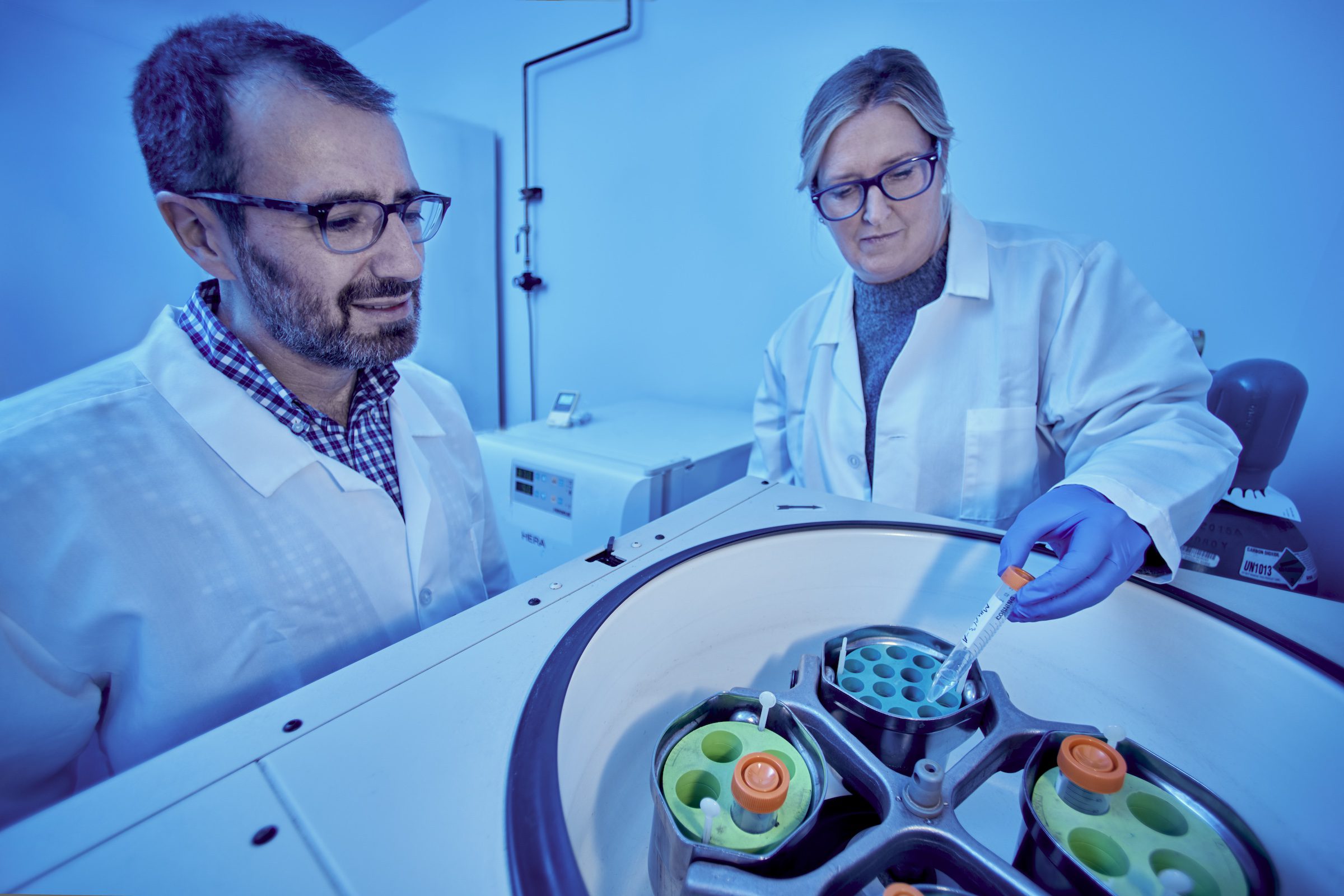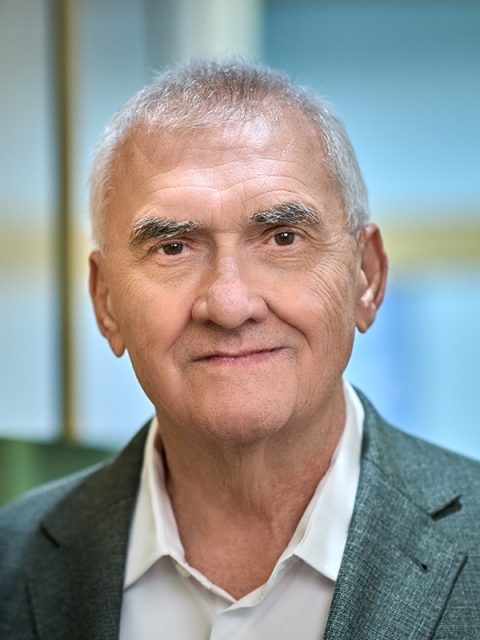“You’d be surprised to learn how few technologies that have been researched in labs for years actually make it to market,” says Frank Urban, director of venture creation – life sciences for Spartan Innovations. “But without getting to the market, that research doesn’t play out into changing people’s lives.
“Dr. Abramovitch’s passion is not only to do tuberculosis research, but to drive that forward, to be a cause of change in the world.”
Urban is speaking of Dr. Rob Abramovitch, associate professor, MSU College of Veterinary Medicine and College of Natural Sciences, and researcher into new therapeutics for treating tuberculosis. Abramovitch’s newly MSU-optioned startup, Tarn Biosciences, based in East Lansing, Mich., is developing therapies for tuberculosis (TB), nontuberculous mycobacterium (NTM) and other mycobacterial infections.
According to the Centers for Disease Control, TB is the greatest killer from infectious disease in the world, causing approximately 1.5 million deaths per year.
“Current antibiotic treatments work slowly, taking up to six months to cure with harsh side effects,” says Dr. Abramovitch. “If the TB is drug resistant, it can take more than two years to treat, with worse side effects. It has a 40 percent mortality rate, even with treatment.”
Transferring the technology
Abramovitch’s research began more than ten years ago with attempts to identify therapeutic targets for intervention in TB. “We screened through about a million compounds for agents that modulate mycobacterium tuberculosis biology, and got some interesting lead compounds,” he said.
When they make such discoveries, researchers at MSU are encouraged to file an invention disclosure, which then goes to MSU Technologies (MSUT), part of the MSU Innovation Center. MSUT works with Spartan Innovations, a wholly owned subsidiary of the MSU Research Foundation, to launch start-up companies based around MSU technologies.
MSUT’s goal is to move technologies from the lab to the marketplace. Dr. Anupam Jhingran, technology manager with MSU Technologies, explains: “My role is to assist our inventors in securing appropriate funds to develop the technology and to file patents to secure the intellectual property rights around new innovations.” Jhingran also facilitated signing of the June 2023 option agreement between Tarn and the University to transfer the researchers’ technologies to the startup for further development.
Tarn was formed out of the collaboration between Abramovitch, MSUT and Spartan Innovations. In the spring of 2021, Spartan Innovations brought on Jim Vrbanac, Ph.D., as CEO as well as a medicinal chemist, Dr. Edmund Ellsworth.
“The idea was to take the research and find a way to commercialize our discoveries,” says Abramovitch. “To do that, we needed to do a lot more chemistry and commercial development. So, we brought Edmund on, who’s been a core member of our team who provides leadership and knowledge about medicinal chemistry, pharmacokinetics, and drug development.”

The journey through drug discovery
Dr. Edmund Ellsworth, professor, MSU Department of Pharmacology and Toxicology has more than 30 years’ experience as a synthetic, organometallic, and medicinal chemist supporting translation from early drug discovery to development. With many years of corporate experience behind him, he is a scientist and leader in the pharmaceutical industry with a clear understanding of the steps and practices involved in the drug discovery process, including the development of new and novel chemistries to meet the needs of each therapeutic application.
“Drug discovery is a long journey that can take years,” says Dr. Ellsworth. “It typically starts out in a lab, where molecular targets are identified then further explored as therapeutic targets for intervention in one disease or another. At Tarn we have landed on two therapeutic focuses: one is TB, which has a global impact. The other is NTM, or non-tuberculous mycobacterium infection, which is an emerging disease in the developed world.”
Abramovitch explains: “NTM infections tend to appear in immunocompromised patients and are growing at about 8% a year in the U.S., Japan and parts of Europe.” In the U.S. prevalence of NTM infections is growing mostly in the south and along the coasts. Some strains, because of antibiotic resistance, are almost incurable. Based on this growth there’s a serious need for new therapeutics.
The scientists have chosen two targets to move towards investigational new drug studies (IND). For both, Tarn expects them to be effective for the treatment of TB and NTM infections alike.
“These drugs will represent important new therapies to treat drug-susceptible and drug-resistant strains of TB,” says Abramovitch. “We expect a result to be shorter drug treatment regimens.”
Funding enables more development
Tarn’s initial funding came through Red Cedar Ventures and Spartan Innovations, both subsidiaries of the MSU Research Foundation. The Foundation also provided support by helping secure an ADVANCE Grant, jointly sponsored by the Michigan Economic Development Corporation (MEDC) and MSU.

This year, the company was awarded a Small Business Technology Transfer (STTR) grant from the National Institutes of Health (NIH), which will position Tarn, once it accomplishes key deliverables, for additional funding, as well as securing possible investment capital down the road.
While the long development process continues, Dr. Vrbanac is overseeing the business aspects of the company. “Right now, I’m managing the grant and we’re setting up all the company policies and procedures with respect to finance, investment, employment, etc.,” Vrbanac says. “I’ll be responsible for getting the money from the government and moving it to contract labs. We have four different contract labs we’re going to use, plus contracting labs at MSU.”
“Until this STTR came through, all of the financial support was coming through Red Cedar Ventures and Spartan Innovations. Now we have independent support for the company through the NIH,” he says.
Phase two funding, which also will come through NIH, is expected to more than double the previous funding. Notes Spartan Innovations’ Urban: “Transition to that kind of funding will be next level, and will put them in a really strong position to do an investment, probably at the end of a phase two”
“One of my most important jobs right now is investor relations,” says Vrbanac. “I’ll do a lot of presenting to potential investors now, so that down the road, when we have some really great data for one of our compounds, I’ll already have a ready list of interested investors to go to for next-phase funding.”
Building strong drug discovery facilities
According to Abramovitch, MSU has made a concerted effort over the past 10 years to build the capacity to do early drug discovery development.

“When I started here in 2013, MSU didn’t have as robust a drug development capacity as we do now. Then they began an effort to build a drug discovery core. They built screening facilities; they hired an administrator to build and provide medicinal chemistry capabilities at MSU, and along with the In Vivo facility, which does pharmacokinetics, they’ve built the capacity to do drug discovery and drug development in the academic environment.
“They’ve built an infrastructure to provide seed money to launch the research. That allows scientists with key early data and intellectual property (IP) to seek other grants to drive the research forward, and then hopefully discover something that could move ahead to continued preclinical development.”
Ellsworth says drug discovery through development takes an entire team, with people trained in biology, chemistry, toxicology, regulatory, development and clinical aspects. Then MSUT and Spartan Innovations are there to assist with business and investment considerations.
From lab to startup
“Many of the faculty have gone through this process here at MSU and started their own companies. The faculty member becomes more of an expert with the know-how to advance therapeutics towards the clinic and hopefully the market,” Ellsworth says.

The entire process enables much more than a lifetime of research. It allows faculty at MSU to be a part of bringing new technologies and therapeutics with the power to change peoples’ lives into the global marketplace.
“I’m an academic researcher, right?” says Abramovitch. “When I started here, I didn’t think I’d ever be starting a business.
“My Ph.D. was in plant diseases,” he continues. “And when I was looking for what I was going to do for the rest of my career I felt a need to work on something that would impact global health. I saw that tuberculosis was this grand challenge in infectious disease and public health that needed more science to come to a solution.
“I thought I could dedicate my career to this, and I became a TB researcher. And since then, every day I’m motivated to get up and go to work because I realize that it’s this huge problem that needs a solution.
“I really feel now that at Tarn we can make solutions; we can help solve this problem.
That’s what motivates me every day.”
The MSU Innovation Center is seeking companies and organizations interested in infectious disease therapeutics, antibiotic development, and drug discovery solutions.
Whether you’re exploring sponsored research, licensing opportunities, or co-developing anti-mycobacterial therapies, drug-resistant infection treatments, or novel antimicrobial compounds, we’re ready to collaborate.
Interested in partnering with MSU faculty on infectious disease research and next-generation pharmaceutical innovations?

